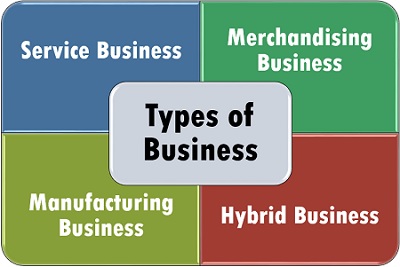
In this brief article, share the various types of commercial business establishments and the types of business corporation to aid you in choosing the right choice for your business. Why is it significant to understand the common types of commercial businesses? Selecting the correct type of commercial structure for your new business is one of the primary decisions an entrepreneur must make. Understanding the types of business, is an important step toward choosing a profitable business structure for your new business venture.
One of the types of business structures you may encounter is a limited liability company (or LLC). This is a popular choice for many start-up entrepreneurs because it allows them to shield their personal assets from lawsuits. Because limited liability companies are considered to be more stable than corporations, they often result in lower start-up costs and lower operating costs. However, in order to protect the profits from a lawsuit, owners need to provide capital funds to cover legal fees.
Another of the types of business structures you may encounter is a corporation. A corporation is a separate legal entity from its shareholders. As such, there are significantly fewer restrictions on what types of activities the corporation may conduct, although the general rules regarding the ownership and transfer of stock are much stricter with a corporation than with any other type of structure. The chart presented below illustrates some of the differences between the two types of business structures.
The most straightforward of all the types of business organizations is a partnership. A partnership is created when two or more people enter into a legally binding contract by which each person has a right to ownership in the partnership. Partnerships may be limited liability partnerships, which give partners joint and in the common property; common law partnerships, in which partners own property directly without being required to live under the same roof; or, in certain limited partnerships, where the partners share equally in the liability of others. Partnerships may also be direct, where there is no third party involved, such as in a trust or corporation.
The most unique of the types of business organizations is a sole proprietorship, which is commonly referred to as a “Sole Access Ownership” (SAP) or” Sole Proprietorship.” Unlike partnerships, a sole proprietorship is not created by a written contract. Instead, partners voluntarily agree to form a business association and, if they so choose, to engage in business together. Partnerships are treated as for-profit organizations, while sole proprietorships are not. As such, sole proprietors are treated with all of the taxes that apply to corporation owners.
Taxation of the types of business organizations described above vary greatly. In many cases, the taxation of a sole proprietorship is based upon the domicile of the owner, which can vary from state to state. Also, depending on whether the partnership is incorporated or not, can determine what types of tax are applied to the partnership. Additionally, although there are no restrictions on who can start a business, sole proprietors are often limited to the number of partners that they can have and may have to cease trading immediately if the partners are unable to continue trading as a single business entity. For these reasons, it is important to consult with a competent business attorney when considering the pros and cons of various business types.